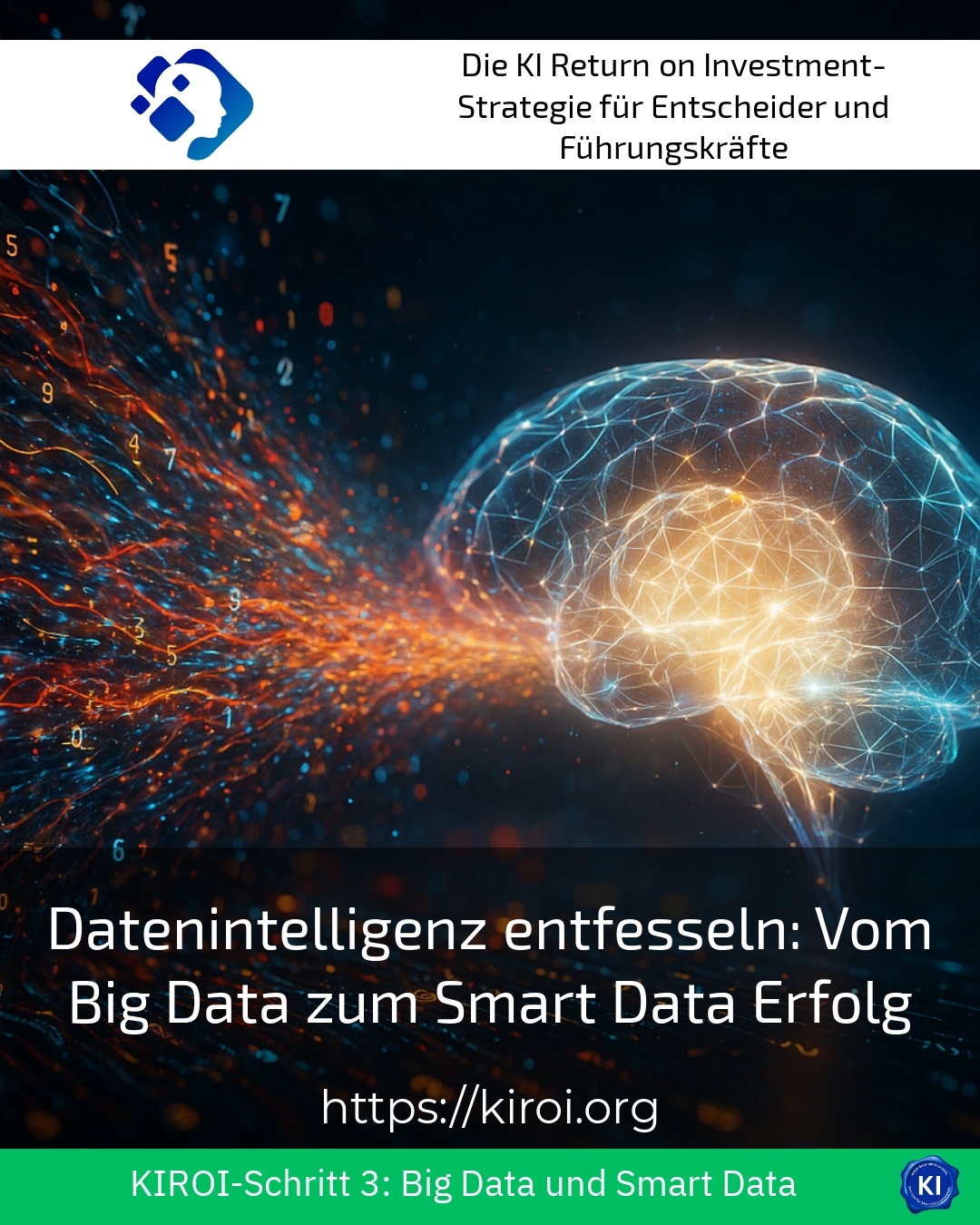In a world of growing data overload, the ability to utilise information strategically is becoming increasingly important. Data intelligence helps companies to gain targeted and valuable insights from large volumes of data. This enables them to unleash the full potential of their data by turning big data into efficient smart data that promotes business processes and creates competitive advantages.
Data intelligence: Shaping the transition from big data to smart data
Many organisations today have enormous amounts of raw data - known as big data. However, the sheer volume of data does not automatically generate any benefits. This is where data intelligence comes in, not only by collecting data, but also by systematically filtering and analysing it. This results in smart data, i.e. high-quality and relevant data that generates real added value in day-to-day operations.
For example, the logistics industry uses data intelligence to optimise supply chains. Instead of spending hours navigating through confusing data sets, smart algorithms are able to recognise relevant parameters in real time and suggest alternative routes. This reduces costs and improves delivery times.
In medical technology, data intelligence supports the automated analysis of image data. AI-supported systems recognise abnormalities faster and more precisely than previous methods, which facilitates diagnosis and increases patient safety.
Online retail also benefits greatly from data intelligence: by analysing purchasing behaviour and customer interactions, targeted advertising campaigns are created that retain regular customers and effectively address new customers.
How companies benefit from data intelligence
Data intelligence significantly accelerates decision-making processes because it is based on up-to-date, valid data. Companies no longer have to rely solely on intuition or experience, but can make decisions with empirical backing. This reduces risks and promotes better cost control.
Another advantage is that data intelligence recognises and eliminates superfluous steps and redundant data - making processes leaner and more efficient. For example, the financial services sector often reports that data intelligence has enabled internal processes to be noticeably optimised and sources of error to be reduced.
In marketing, data intelligence makes it possible to create personalised content that is precisely tailored to the needs and preferences of customers. Streaming services, for example, analyse user behaviour and recommend individual content, which increases customer satisfaction.
BEST PRACTICE with one customer (name hidden due to NDA contract) The client, a leading provider in e-commerce, used data intelligence to strengthen customer loyalty. By analysing interaction data, it was possible to create personalised offers that sustainably increased sales and the repurchase rate. The data-driven strategy was a central component of the company's success.
Data intelligence in everyday life: concrete application examples
In the automotive industry, data intelligence is used to monitor production processes. Sensor data from production is analysed in real time so that failures can be detected and avoided at an early stage.
In retail, smart data analyses make it possible to better understand regional purchasing behaviour. This leads to optimised stock levels and prevents over- or undersupply in shops.
In the healthcare sector, patient data is combined in order to derive individualised treatment plans. This is where data intelligence comes into play by combining disparate data sources and interpreting them in a targeted manner.
Tips for the successful implementation of data intelligence
1. start with a clear data strategy. Define which questions your data should answer and how the insights gained can support your business goals.
2. rely on intelligent technologies and tools, e.g. AI-supported analysis platforms that offer automated pattern recognition and data quality checks.
3. promote a data-driven corporate culture. Employees at all levels should be empowered to work with data and utilise its potential.
4. avoid data silos by managing data centrally or making it accessible via data hubs. This facilitates integration and collaboration.
My analysis
Data intelligence is a key factor in generating valuable smart data from the growing volume of big data. Companies benefit from faster, more informed decisions and optimised processes. The change will succeed if a clear strategy, suitable technical solutions and an open data culture work together. Companies that actively utilise data intelligence build sustainable competitive advantages and strengthen the innovative power of their business model.
Further links from the text above:
What is data intelligence and what does it mean? [1]
Big data vs. smart data: is more always better? [2]
Unleashing data intelligence: KIROI 3 - Big Data meets Smart ... [5]
Big data: the utilisation of large amounts of data [6]
Why data intelligence is the key to your business success [7]
For more information and if you have any questions, please contact Contact us or read more blog posts on the topic Artificial intelligence here.















